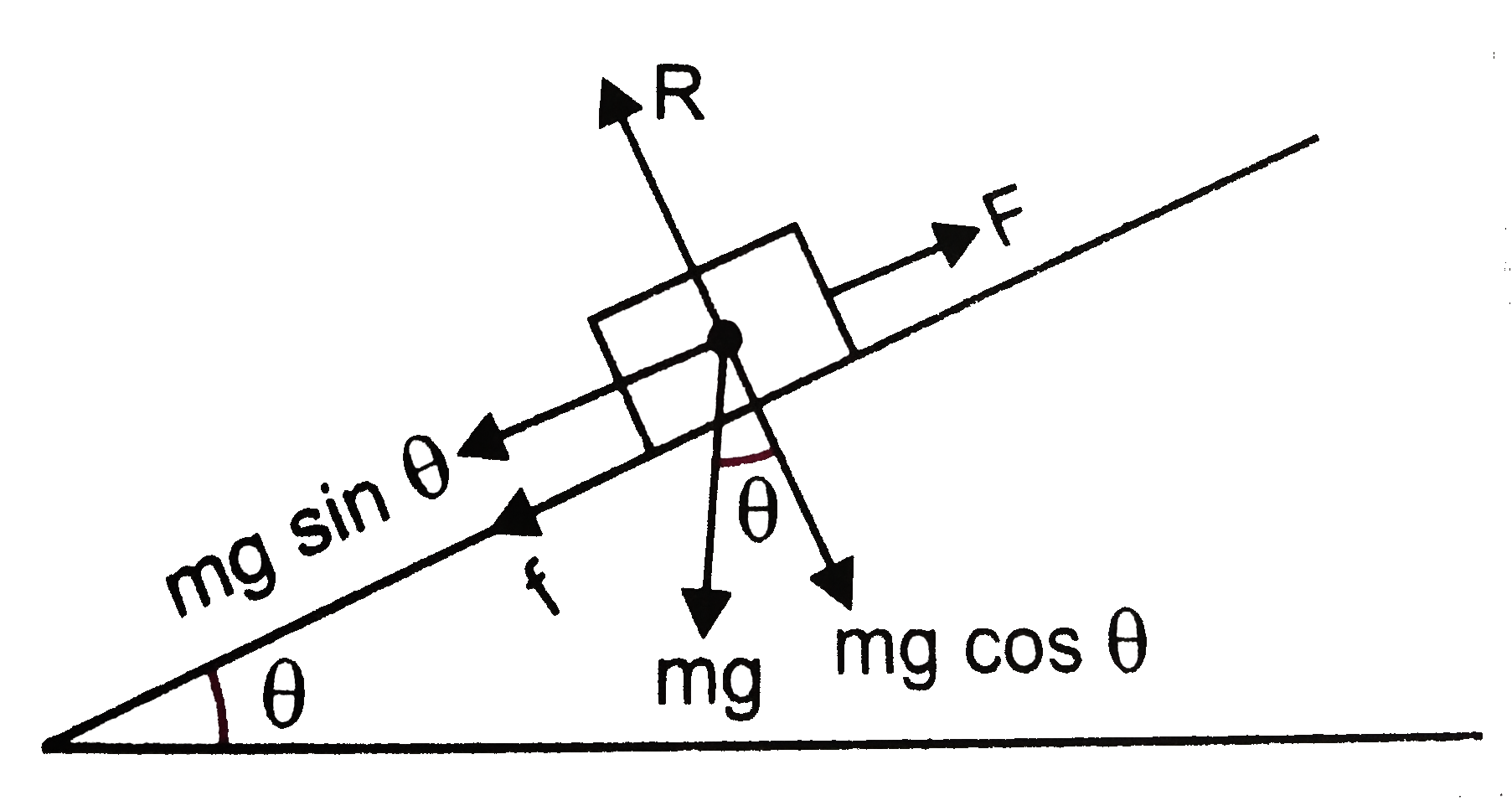Define coefficient of limiting friction.
Step-by-Step Solution:
1. Understanding Friction: Friction is the force that opposes the relative motion of two surfaces in contact. It acts in the opposite direction to the applied force.
2. Defining Limiting Friction: Limiting friction is the maximum amount of frictional force that can be exerted between two surfaces before they begin to slide over each other. It is the frictional force that acts on an object at rest when a force is applied to it.
3. Conditions for Limiting Friction: When a force is applied to an object resting on a surface, the object will not move until the applied force exceeds the limiting friction. At this point, the object is on the verge of motion.
4. Mathematical Representation: The limiting friction (F_l) can be expressed as:
Fl=μ⋅N
where:
- Fl is the limiting frictional force,
- μ is the coefficient of limiting friction,
- N is the normal reaction force (the perpendicular force exerted by a surface on the object).
5. Coefficient of Limiting Friction: The coefficient of limiting friction (μ) is defined as the ratio of the limiting frictional force to the normal reaction force. It is a dimensionless quantity and can be expressed as:
μ=FlN
6. Conclusion: The coefficient of limiting friction is a measure of how much frictional force is present between two surfaces in contact before they start to slide. It varies depending on the materials in contact and their surface conditions.
---
Fl=μ⋅N
where:
- Fl is the limiting frictional force,
- μ is the coefficient of limiting friction,
- N is the normal reaction force (the perpendicular force exerted by a surface on the object).
μ=FlN
Topper's Solved these Questions
Similar Questions
Knowledge Check
Friction between any two surfaces in contact is the force that opposes the relative motion between them The force of limiting friction (F) between any two surfaces in contact is directly proportional to the normal reaction (R) between them F∝R or F=μR where μ is coefficient of limiting friction If θ is angle of friction then μ=tanθ
A force of 49N is just able to move a block of wood weighing 10kg on a rough horizontal surface The coefficient of friction is .A0.5B4.9C10/49D49/9.8Friction between any two surfaces in contact is the force that opposes the relative motion between them The force of limiting friction (F) between any two surfaces in contact is directly proportional to the normal reaction (R) between them F∝R or F=μR where μ is coefficient of limiting friction If θ is angle of friction then μ=tanθ
A horizontal force of 1.2kg is applied on a 1.5kg block which rests on a horizontal surface If the coefficient of friction is 0.3 force of friction is .A0.45kgfB1.2kgfC1.5kgfD0.3kgfFriction between any two surfaces in contact is the force that opposes the relative motion between them The force of limiting friction (F) between any two surfaces in contact is directly proportional to the normal reaction (R) between them F∝R or F=μR where μ is coefficient of limiting friction If θ is angle of friction then μ=tanθ
The angle of friction in the above question is .A34∘26'B30∘C26∘34'D45∘
What is the unit of coefficient of limiting friction ?
View SolutionA body of mass 10 kg is placed on an inclined surface of angle 30∘ . If coefficient of limiting friction is 1/√3 , find the inclined plane. Force is being exerted parallel to the inclined plane
 .
.
View SolutionDefine coefficient of variation.
View SolutionDefine coefficient of utilization.
View SolutionFriction between any two surfaces in contact is the force that opposes the relative motion between them The force of limiting friction (F) between any two surfaces in contact is directly proportional to the normal reaction (R) between them F∝R or F=μR where μ is coefficient of limiting friction If θ is angle of friction then μ=tanθ
The acceleration produce in the block in the above question is .
View Solution
